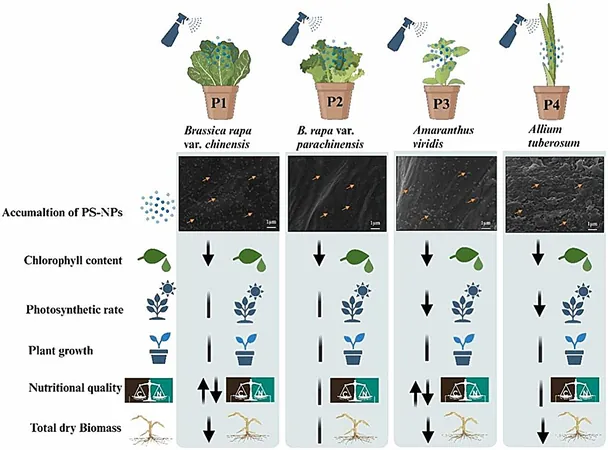
Groundbreaking Study Reveals Fecal Transplants Can Alleviate ADHD and Anxiety in Epileptic Dogs
2024-09-24
Author: John Tan
Introduction
In a remarkable discovery, researchers from the Texas A&M College of Veterinary Medicine and Biomedical Sciences, in collaboration with the Center for Systems Neuroscience in Hannover, Germany, have found that fecal microbiota transplants (FMT) can significantly reduce anxiety and attention-deficit symptoms in dogs suffering from drug-resistant epilepsy. The findings, now published in the esteemed journal *Frontiers in Veterinary Science*, shine a light on the intersection of gut health and mental wellbeing in our furry friends.
Understanding Fecal Microbiota Transplants
FMT has gained attention in human medicine over the past two decades, owing to a growing comprehension of the gut microbiome—the complex universe of bacteria and microbes that play a pivotal role in digestion and overall health. New research suggests that the gut microbiome also possesses a substantial influence over the brain, operating through what is referred to as the 'gut-brain axis.' This exciting concept is now being explored in veterinary science.
Study Details
The study involved nine dogs diagnosed with epilepsy that was resistant to conventional treatment methods—an alarming condition affecting approximately two-thirds of canine epilepsy cases. Notably, these dogs exhibited heightened levels of ADHD-like behaviors and anxiety compared to their counterparts.
Insights from the Research
Dr. Jan Suchodolski, associate director of research and head of microbiome sciences at the Texas A&M Gastrointestinal Laboratory, shared insights from the study: 'Each dog underwent FMT three times over several weeks, followed by ongoing evaluations.' The results were impressive; all nine participants displayed marked improvements, including reduced anxiety and a better quality of life.
Ongoing Research and Implications
While the exact mechanisms behind these behavioral enhancements remain elusive, researchers are eager to continue exploring innovative treatments for drug-resistant conditions through the lens of microbiome science. Such research has implications that could benefit both human and veterinary medicine alike.
The Gut-Brain Connection
The gut-brain connection may seem paradoxical at first glance, yet evidence increasingly supports an intricate relationship between digestive health and mental wellness. 'The gut is far more integral to our overall health than most people realize,' emphasized Suchodolski. 'We often discuss the gut-brain axis, but one should also consider the gut-kidney axis and the gut-liver axis, among others.'
Understanding the Impact of Gut Health
As scientists deepen their understanding of the gut's influence on various bodily systems, they uncover how mental stress can disturb gut motility, and how neurological disorders like Alzheimer’s and strokes can also manifest gastrointestinal symptoms.
Future Perspectives
FMT represents a cutting-edge approach harnessing the gut-brain relationship, showing substantial potential. 'Think of the microbiome as a garden. FMT revitalizes it by introducing an entirely new ecosystem of bacteria and microbes,' Suchodolski explained.
Conclusion
This pioneering research opens up new avenues for treating mental health issues in pets and may pave the way for revolutionary methodologies in both human and veterinary healthcare, highlighting the critical need to acknowledge and cultivate the gut microbiome for overall well-being. Don't miss the chance to learn more about this thrilling advancement—stay tuned as we follow these developments in canine health!




 Brasil (PT)
Brasil (PT)
 Canada (EN)
Canada (EN)
 Chile (ES)
Chile (ES)
 España (ES)
España (ES)
 France (FR)
France (FR)
 Hong Kong (EN)
Hong Kong (EN)
 Italia (IT)
Italia (IT)
 日本 (JA)
日本 (JA)
 Magyarország (HU)
Magyarország (HU)
 Norge (NO)
Norge (NO)
 Polska (PL)
Polska (PL)
 Schweiz (DE)
Schweiz (DE)
 Singapore (EN)
Singapore (EN)
 Sverige (SV)
Sverige (SV)
 Suomi (FI)
Suomi (FI)
 Türkiye (TR)
Türkiye (TR)